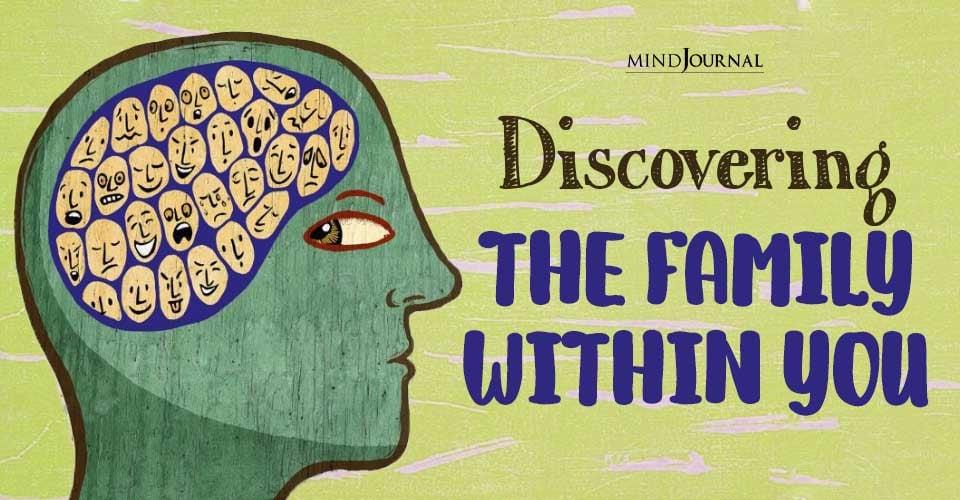Are you someone who is constantly regarded as an entitled person? Do you personally believe that you suffer from the entitlement complex? People with a sense of entitlement see themselves being superior to others. The entitlement mentality defines itself as a feeling of having a privilege.
When we were young it was kind of cute when we threw tantrums as toddlers, not getting what we wanted. People would coo at us, maybe even pick us up and hold us, telling us in ooey-gooey tones that “you’ll get it later” or “you’ve got to wait a little while”.
Then our tears would be mopped up, our snotty little noses would be wiped, and we’d be placed gently to the ground again. As we grew older, some of us would learn to wait our turn, be patient and show consideration for others.
Some of us, however, didn’t. We’d continue throwing tantrums but in more mature and sophisticated ways.
We’d continue to demand our fair share from others, but more subtly, and often without screaming or rolling around on the floor crying. And lastly, we’d continue to expect special treatment just because … well, because it’s us and we deserve it – naturally!
Well here’s the thing … we’ve all got to grow up at some point. We’ve all got to realize that we’re not the center of the universe.
As a prevalent collective shadow in this world, we need to be willing to face this flaw with courage in order to grow as people and connect more from the heart with others.

Me! Me! Me!
Having a sense of entitlement can easily be mistaken as natural, and even healthy. After all, don’t our parents and societies constantly tell us that “we’re unique,” “we’re special,” and “we’re number one”?
The truth is, having a sense of entitlement is a malignant form of Self-Love because it often harms the people around us, which indirectly harms us in the long term.
What is a sense of entitlement?
In essence, a sense of entitlement is established and upheld by the belief that we are the center of the universe, and if the universe doesn’t meet our needs and desires, all hell will break loose.
This narcissistic mindset is often the result of failing to learn as children and young adults that we are not so special, and other people don’t merely exist to serve our needs and wants.
Read The Narcissistic Dictionary: Terms That Describe Narcissistic Behaviors
Examples and Signs of Entitlement Mentality:
- Tim and Estelle are in a long-term relationship. Tim works full-time to support Estelle and their child in a small two-bedroom apartment. Estelle spends a large portion of Tim’s money on dresses and fancy accessories. When confronted, Estelle screams that she never wanted to live a “poor and lonely life”, and Tim never treats her anyway.
- Antonio shows up unexpectedly at his mother’s house drunk one night expecting to receive a bed and a meal. When his mother refuses, telling him to call his girlfriend to pick him up, he argues with her and drives away in a drunken rage, not talking to her for the next 6 months.
- Katie and Xiang are best friends. But when Katie doesn’t respond to one of Xiang’s texts within half an hour, Xiang blocks her and doesn’t talk to her for the next week. Xiang fights with Katie accusing her of “not caring” and “forgetting about her”.
- Alex and Ben are a gay couple who are about to get married. While Ben wants a humble and modest ceremony, Alex wants it to be extravagant and expensive. Meeting with the wedding adviser while Ben is sick one day, Alex raises the budget from $5,000, to $20,000. When Ben finds out he demands angrily why. Alex says that he “deserves more than a measly little wedding” and guilt trips Ben into going through with it.
These are only a few illustrations, but there are countless stories out there that exemplify both passive and aggressive disregard for others.
Read How A Narcissist Plays You And How Their Cycle Of Abuse Works
16 Signs You Have A Sense of Entitlement

By now you may be wondering: do I have a sense of entitlement? Like anything in life, there is a spectrum, and while you may not be a full-blown narcissist or have a borderline personality disorder, you may exhibit a certain level of selfishness that makes other people’s lives hard.
Here’re Signs You Have A Sense of Entitlement:
1. You impose unrealistic demands on your family, children, friends, acquaintances, lovers, employees, and/or employers.
2. You tend to feel sorry for yourself if things don’t work out the way you wanted (self-pity) and openly advertise this in melodramatic, attention-seeking ways.
3. People have called you a “bully”, “manipulative”, “ruthless”, “egotistical”, “vain”, or a “liar”.
4. You believe that you deserve happiness and go to great, sometimes extreme lengths to ensure that happens, often at the expense of others.
5. You punish people when they don’t do what you want either passively (e.g. silent treatment, gossiping, spreading rumors) or aggressively (e.g. shouting, verbally/physically abusing).
6. In order to “succeed” in life, you believe in going to any lengths.
7. You constantly see other people as competition or “threats”.
8. You tend to exhibit many double-standards in the way you behave/interact with other people, e.g. I can be late and forget my duties and commitments, but YOU can’t; I can treat myself, but YOU can’t; I can abuse or disrespect you, but YOU can’t to ME.
Read Manipulation Of The Charming Narcissist
9. You tend to take more than give in friendships and relationships.
10. You tend to look out for yourself, your needs and desires more than anyone else almost 100% of the time.
11. You have a hard time negotiating or compromising.
12. You have a deep-seated conviction that you have priority and should always come first, even at the expense of stepping on others.
13. People always seem to be offended or upset by what you do or say.
14. You generally think that you are better, or more important than other people and other people should see this and unquestioningly respect you.
15. You crave admiration and adoration.
16. You like to assert your dominance or superiority over other people, finding it second nature.
How to Overcome Entitlement Mentality?
It’s important to remember that we all suffer from personality flaws. While some of us are stingy or deeply insecure, others of us have a sense of entitlement complexes.
If you tend to show this narcissistic trait, there are many ways to slowly work through it to improve the quality of your life, and the lives of others. Examples include:
- Developing more Self-Awareness. Without being aware of what you think, feel and do, you won’t be able to progress very far.
- Identifying your inner expectations about the world, as well as deep-seated beliefs and ideals. Often a sense of entitlement stems from unhealthy or unrealistic perceptions that you may not even be aware of.
- Work to accept life as it is without imposing your beliefs, ideals, or expectations. This includes practicing forgiveness and allowing people to be the way they are naturally.
- Concentrate on developing compassion and empathy. Asking “how does this affect others?”, “how does he/she feel right now?”, “how would I feel if I was her/him?” helps to broaden the mind, and open it to new, and beneficial, ways of thinking.
- Celebrate with other people, and celebrate other people. Pay attention to the happiness and joy of others: happiness shared is happiness multiplied. Also, being thankful for the people in your life allows you to place more importance in them, seeing how truly special they are.
- Slowly work on cultivating true self-Love, not the malignant kind.
Change won’t come overnight, but with dedication and willpower, your life can take a permanent turn for the better.
If you would like to share any thoughts or experiences you have on having a sense of entitlement, please do so below in the comments area!
Suffering from an entitlement complex is always a negative thing, and can not only hurt the people close to you but in a way, it can hurt you too. But if you want to change this in yourself, focus on working on yourself, and with time, you will get better.
If you want to know more about entitled behavior, then check out this video below:
Written by Aletheia Luna
Source - Loner Wolf














Leave a Reply